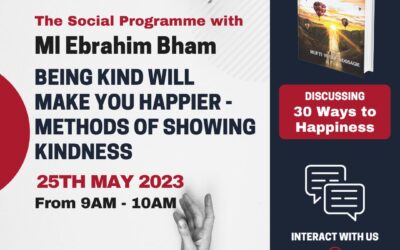
By Neelam Rahim
Effective communication between students and teachers has the potential to improve the learning experience and create a positive environment in the classroom. Indeed, with all that will contribute to a positive experience, we should encourage and assist in achieving it—noting the challenges that are out there today in the world of learning, from large classrooms to distractions.
However, the relationship takes work on both ends from the sides of the learner as well as the side of the educator. Communication barriers in the classroom make it difficult for students to get the most out of their education.
Joining the discussion with Radio Islam International is speech therapist Nazmeera Ismail.
According to Nazmeera, there have been so many barriers that have impacted learners, especially during the lockdown during the Covid period and getting back into the routine has brought up many challenges for parents and kids.
She says some of the communication problems parents can look out for with their school-going children can range from something like speech sounds. Nazmeera further advises that if parents notice that a child has difficulty saying the sound, they may not speak clearly and have a problem in understanding. This can then be transferred over into their language and literacy.
In terms of social communication, she added that a child might have difficulty talking with other kids, may not make friends easily, and may make it difficult for others to understand what they are thinking or how they feel.
Nazmeera further mentions that another component of cognitive communication is the thinking skills kids need to remember or solve problems and use their imagination. Sometimes learning disabilities or neurological challenges can cause these problems in the classroom.
Something that is very much overlooked is feeding and swallowing. It sounds strange to look at this as a communication problem in school. Still, if a child is having difficulty eating or drinking, some anatomical contribution makes that problematic. Naturally, learning on an empty or hungry tummy makes it challenging to learn. She said it also creates social time like lunch break a bit more difficult for the child.
Nazmeera also says, one of the last components to look at in terms of communication in the classroom is perhaps voice. If a child has any voice challenges, this may make it difficult for them to interact with friends and their teachers because of that issue stemming from voice challenges.






0 Comments